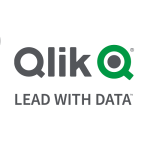
Fivetran Primary Use Case
In my current project, the specific use case of Fivetran is bridging the gap between siloed data, allowing me to extract and have it in the same data warehouse. Fivetran works with its seamless connections to sources and destinations, helping to avoid reinventing extraction logic from scratch. Fivetran already has data models, so it pulls in data quickly, providing it all in the same data warehouse.
View full review »The usual use cases for Fivetran that I work with involve real-time replication from Oracle Fusion, Oracle DB, and some of the APIs. I also work with replication from S3.
View full review »
Fivetran is our main ETL tool. We use it primarily to extract data from different data sources and load it to our data warehouse. We don't do any transformations using Fivetran, as it is primarily used just for data extraction.
View full review »
Buyer's Guide
Fivetran
October 2025
Learn what your peers think about Fivetran. Get advice and tips from experienced pros sharing their opinions. Updated: October 2025.
870,697 professionals have used our research since 2012.
I work in a company where Fivetran is being used, and we pay the licenses to them. We use it as a customer with a lot of different sources to our databases, such as Google Cloud Storage. Fivetran is used to establish data connections in the pipeline, for example, from SAP S4HANA to Google Cloud Storage.
View full review »
The primary use case for Fivetran is integrating with multiple data sources. We explored this use case when considering Fivetran.
View full review »
At our company, we are using Fivetran for change data capture and to sync between two different databases using the high volume replication feature.
View full review »We have implemented Fivetran at client sites to connect to various platforms like Dynamics 365 and SharePoint. My objective was to determine which solution was better for handling geospatial data.
View full review »We have a number of different data sources that we collect information in from; for example, Salesforce for sales, Marketo for marketing, NetSuite for finance. We wanted to centralize all that data into a data warehouse, which is why we use Fivetran to manage all of those data pipelines.
View full review »Our company uses the solution for the extraction part of data warehousing and ETL or ELT processing. Once we extract, we use Snowflake to database as soon as possible. Later on, we process the data.
We currently have five to ten users with no significant growth plans. We recently added one new team member and he is already accessing the solution.
View full review »For this project, we are using both Fivetran and HVR; however, HVR has a limited number of connections, with only around 30 sources, whereas Fivetran has around 200 source connections. Therefore, if we are unable to connect with HVR, we are connecting with Fivetran.
Fivetran is a SaaS solution, so it is always on a public cloud.
This solution was previously called HVR, which stands for "high-volume replicator." It is now part of Fivetran. It is useful when you need to migrate a large volume of data. We use it for massive data migrations from 30 or 40 sources, including the file system database and some transitional systems.
In our case, we had historical and active data. Everything was in on-premise Oracle databases. The historical data itself was around 4.5 terabytes. Fivetran is currently deployed in an AWS EC2 instance.
View full review »We use FiveTran to do data integration and pipelines into data warehouses for analytics. We do the typical use case of bringing in from our internal systems, data syncing, change data capture, as well as bringing from third-party systems, like Salesforce, NetSuite, and even Google Analytics and web platforms. We use the solution primarily in an ELT framework.
We are ingesting data from various SaaS tools.
View full review »Real-time streaming and SAP are the primary use cases of the solution.
View full review »We use this solution for integration with different data sources to push data to our data warehouse, BigQuery and regularly updating the data.
We have four people using this solution in our business.
View full review »SK
SuneelKumar
Engineering manager data at Arrive logistic
I primarily use Fivetran to reduce the operational cost time of data engineering.
View full review »JM
Jayanthi-Mani
Assistance Vice President for Data managment at Capgemini
We are doing a proof of concept, and we are still building the operating model. We are using it for moving data from one source to another. We will be using HVR with Snowflake.
View full review »We have multiple data available from multiple sources. We use the tool to collect the data in one data warehouse.
View full review »FA
Felipe Brina
Sr. Business Intelligence Analyst at a manufacturing company with 10,001+ employees
We use the solution to replicate data from our ERP.
View full review »We use Fivetran to build data engineering pipelines. It helps us do a lot of data transformation and data extraction.
View full review »We use Fivetran for bidirectional data synchronizations between systems.
View full review »I'm responsible for replicating the data from one source to another. It is constantly running, and we do nothing other than looking at monitoring reports. Once it is established, it is pretty much hands-off.
We are not using its latest version. We are slow to migrate to the new version. We wait until there is a need to upgrade, and we are generally one or two versions behind.
View full review »MR
Matt Romo
Principal Data Engineer at a tech services company with 11-50 employees
Fivetran is an ingestion tool used to move data between different sources and destinations. It helps orchestrate pipelines that can be set up manually without technical experience. It facilitates daily pipeline runs based on a specific schedule determined by the licensing level.
View full review »MR
Matt Romo
Principal Data Engineer at a tech services company with 11-50 employees
Fivetran is used as an ingestion tool to move data between different sources and destinations. It orchestrates a series of pipelines that can be easily set up manually without any technical experience. These pipelines can run daily according to a specific schedule, depending on the licensing level. Fivetran addresses schema changes and updates destination tables unless there's a major difference, which is helpful in integrating systems from third parties.
View full review »MR
Matt Romo
Principal Data Engineer at a tech services company with 11-50 employees
We mainly use Fivetran for ETL.
View full review »I mainly use HVR Software for replication and migration.
View full review »We primarily use the solution for business intelligence.
View full review »We are currently using the private model of this solution. It is CDC and we take data from an OLTP system to populate a data warehouse and to populate a reporting system.
View full review »Buyer's Guide
Fivetran
October 2025
Learn what your peers think about Fivetran. Get advice and tips from experienced pros sharing their opinions. Updated: October 2025.
870,697 professionals have used our research since 2012.























